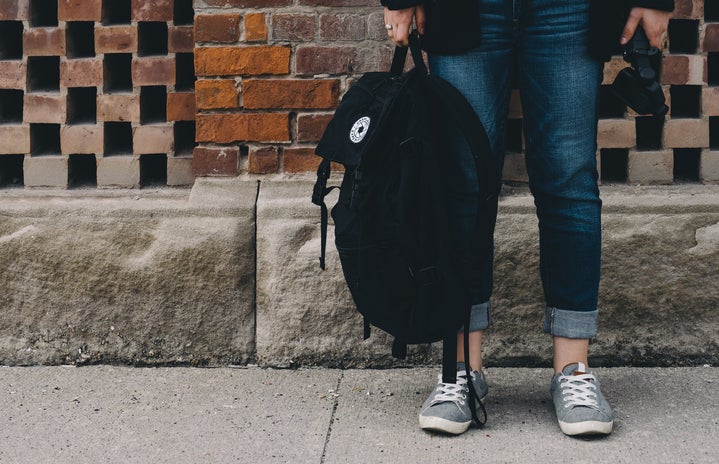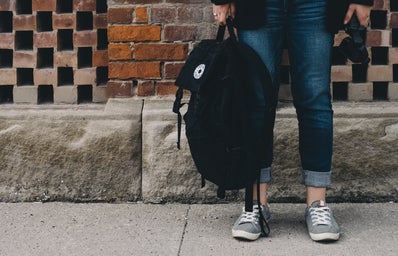*This article reflects the views of the author and not Her Campus as a whole*
In the six years since Sandy Hook, there have been 239 school shootings nationwide. Gun Violence Archive, a nonprofit, tracks these attacks and reported a total of 438 victims since the Sandy Hook massacre. However, we all know that number is not inclusive of the families, friends and acquaintances traumatized by these assaults. Classmates are dying, children are crying and gun lobbyists are buying our Congress. Has society become desensitized by school shootings because they are so frequent? Why do they occur and why at such high rates? This article will attempt to explain, not justify, why school shootings are increasing.
The greatest and most obvious of these reasons is social influence. A study conducted by two PhD scientists at Ohio State University, found that teenagers were 48 percent more likely to have been in a serious fight, 140 percent more likely to have pulled a weapon and 183 percent more likely to have hurt someone if they knew someone who had done the same. The influence of one violent person can spread through up to four degrees of separation. Simply put, teenagers are more likely to demonstrate contagious violent behavior because of the influence of their peers. High schoolers are learning how to navigate a crammed social environment wreaking of peer pressure, bullying and trends. It is easy to become a follower in a space where individuality is not readily accepted, so becoming a follower or different version of yourself, is common among adolescents. Teenagers consistently change and may engage in bad choices, if they seem appealing. Confusion in decision making stems from the incomplete development of the prefrontal cortex, which does not fully develop until age 25. Changes in plasticity render the system highly vulnerable to the effects of outside stress. During development, adolescents are vulnerable to these stressors, which explains why they may behave differently, make controversial choices and can be more easily influenced by others.
Another reason for erratic behavior can be untreated mental illness. The Child Mind Institute calculated that 17.1 million kids face a diagnosable mental illness, with 29.1 percent of illnesses causing severe impairment. Most of these disorders do not result in violence, but that does not eliminate the possibility of suicidal or homicidal actions. Severe mental illness becomes increasingly dangerous if the person does not receive treatment. However, some people are afraid or embarrassed to ask for help, or they do not have the financial means to afford help. The outlying few who do not receive help and display concerning behavior are the ones to watch out for. Resorting to physical violence sometimes becomes the only outlet for troubled people. However, mental illness alone does not cause mass shootings: It’s lack of treatment in combination with other stressors, such as poor grades, social pressure and a troubled home life, is what can make certain mentally ill people dangerous.
Physical violence is often the product of a difficult home life. Florida shooter Nikolas Cruz, lost both of his parents, was adopted and was diagnosed with autism and depression. However, these were not the only stressors in his life. A profile published by The Washington Post details how he was expelled from high school, posted pictures of weapons and dead animals to social media, displayed concerning behavior to neighbors and family members, vandalized property and posted his desire to be a professional shooter online.
Concerning behaviors indicated that Cruz was potentially dangerous, but there was no absolute way of knowing it would lead to a mass shooting. Certain measures can be taken to prevent more school shootings from happening. We have seen the facts and statistics, so why do we still have multiple shootings each year? Besides Congress and gun rights groups, we must look at the public-school system. Following school shootings, there is a 10 to 12 percent increase in private high school enrollment. This does not make private schools safer; it outlines how public schools need to restructure their counseling and support system.
“School psychologists work with parents and teachers across multiple settings,” said Tammy Hughes, PhD in School Psychology. “But too often, when budget cuts loom, prevention and early intervention are the first to go. The trimming happens at prevention: the time when we have the most ability to influence positive social and emotional development and address symptoms early.”
With budget cuts, students do not receive proper access to support systems in public schools. Counselors and psychologists in large schools are not allotted extra time to devote to students, especially the ones who need it most. If a student is violent, uses drugs, receives poor grades and displays or hides a concerning appearance, then they should be looked after by these counselors. Psychological support is already implemented in schools in European countries. Through care and education, ignorance is eradicated. Public schools should counsel their students multiple times a year and wholly invest in them. Students need someone they can trust.
The last reason people can terrorize on mass scales is because of our government. Guns are easy to obtain, and Congress members are bought by gun rights lobbyists. A study conducted in 2000 by the RAND Corporation found that 22 million children live in homes with a firearm. The NRA has spent $203.2 million on political activities since 1998. In the 2016 election cycle, $5.9 million was spent on Republicans, and $106,000 was spent on Democrats. Our current system allows anyone over 18 to buy guns legally with proper background checks. However, these background checks fail to check important factors such as current mental health. The National Instant Criminal Background Check System only asks four questions regarding past involvement with crime and substance abuse. Congress needs to consult psychiatrists and psychologists and work together to set a bar that makes mental health testing unique for individuals who want to obtain weaponry. The DSM-IV is a good place to start.
The time to change is now. It all starts with each person becoming educated on socially relevant issues. We must be open to hearing and debating different perspectives. We must work together across communities. To quote Walt Whitman in Democratic Vistas, “I advise you to enter more strongly into politics. Always inform yourself; always do the best you can; always vote.” We need to have important conversations, even if they are unsettling.
To disclose my personal vista, we the people hold the power. We were given eyes to see what is wrong and learn from our mistakes. We were given ears to hear ignorance and end it. We were given a voice to speak up loud and clear, especially for the voiceless. We were given hands to hold and feel our power together. We were given the dark to realize the importance of light and understand how both are necessary for life.
As a student, child and sister, I want healing for the families suffering from loss and trauma — this can happen to anyone.
Photo Credit: 1


